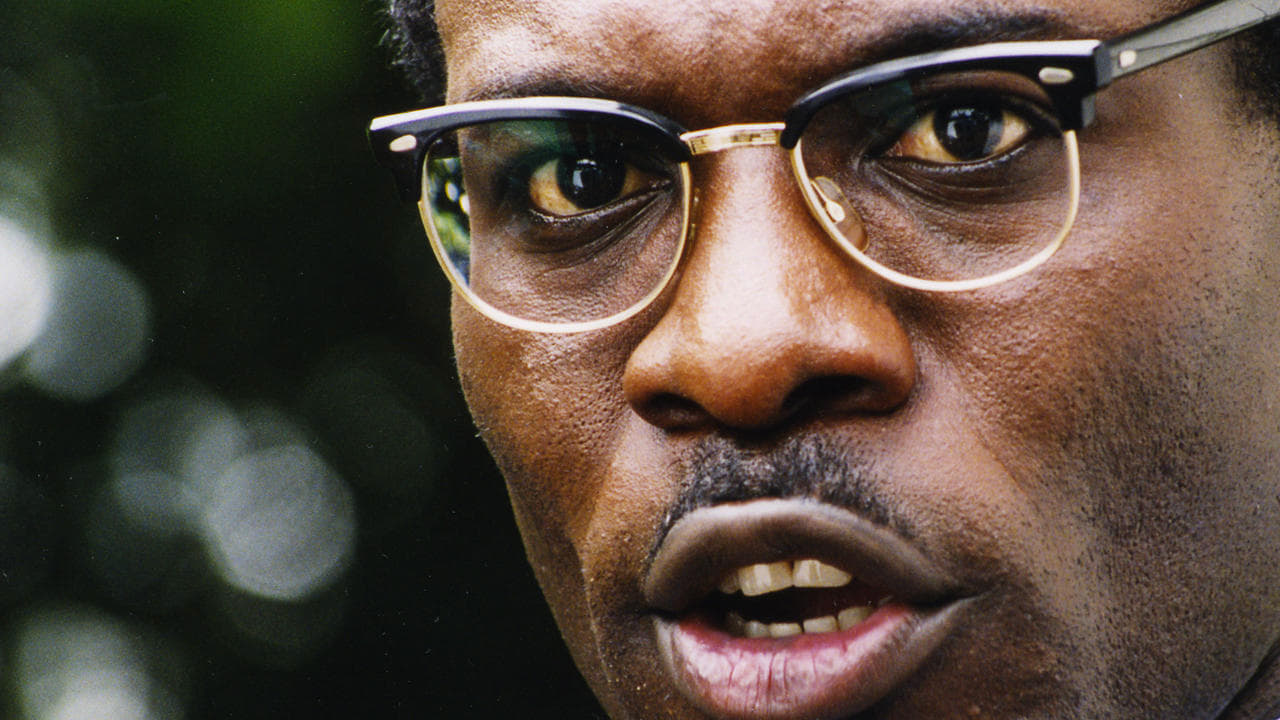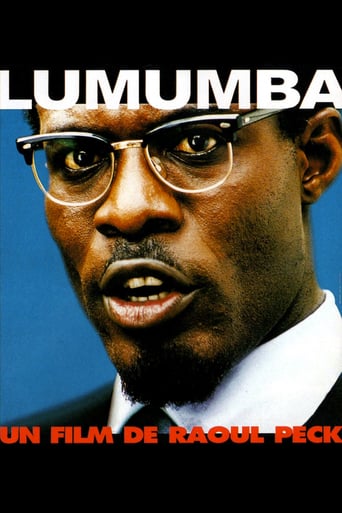

brilliant actors, brilliant editing
... View MoreIt’s fine. It's literally the definition of a fine movie. You’ve seen it before, you know every beat and outcome before the characters even do. Only question is how much escapism you’re looking for.
... View MoreThe film's masterful storytelling did its job. The message was clear. No need to overdo.
... View MoreIt really made me laugh, but for some moments I was tearing up because I could relate so much.
... View MoreThis movie was intended to explore the powers that resisted and ultimately ended Lumumba's political movement in the Congo with historical accuracy. Although it goes to great lengths to meet that end, it falls horribly short in two major ways. One, the CIA is mentioned just one time. Two, JFK is portrayed as though he authorized Mubutu's "offer" of a military takeover. This is despite the fact that Lumumba was killed three days before JFK became president! With the information now available (read JFK: Ordeal in Africa by Richard Mahoney), there is no doubt that the Dulles brothers using the CIA were chiefly responsible for Lumumba's assassination. Kennedy was heartbroken by the news and understood and advocated for a united Congo much like Lumumba did, opposing Eisenhower and the CIA. Not to mention the Belgians and British. Although one could argue these points do not have a major impact on the movie, they are critical to understanding not just the Congo during that period, but the intense internal conflict in the United States between large interests (Wall Street represented by CIA) and JFK's vision for the world (third world independence and development, anti-imperialism).
... View MoreA movie like "Lumumba" stands or falls with it's main performance, and I'm glad to say Eriq Ebouaney (copy-paste to the rescue) definitely knows how to hold up a movie. His acting has a wonderful natural touch to it, which makes it tough to imagine the movie with anyone else in the lead. Lumumba was a pretty complex political figure, it's good to see that he's become a complex character as well. The second main thing this movie has going for it is probably it's pacing. The movie seems very compact, it knows when to move on. It never drags, and the mere fact that it manages to cram this story into two hours without leaving any important stuff out is an amazing feat. It also employs that narrative structure where the entire movie is told in flashback, which works out really well here and also comes with some excellent voice-over monologues. Even if you're not a total history buff, hell especially if you're not a total history buff, this movie is very compelling. Excellent production.
... View MoreBeing Belgian myself, I take interest in the history of Congo. It has been our only colony for many years (Rwanda was a Belgian protectorate, but not a colony), and it is part of our country's history. Nowadays it seems to be very popular to say that all that the Belgians did to Congo was wrong, especially in the 19th century. I'm not saying that bad things didn't happen. Of course they did, but back then this wasn't abnormal. Do you really think the French or the Brits were that much nicer in their colonies? No, they weren't. It was 'normal' at the time for our king Leopold II to use Congo as a way to gain personal wealth. It was his private property (it didn't belong to the state then) and he tried to make the most out of it. Of course gruesome things like hands being chopped off happened and yes to todays standards that's inadmissible, but in those days it was common practice. And it has to be said, all this didn't happen anymore during the last decades... I know several people who have lived an worked in Congo for many years before the declaration of Congolese independence. It's true that they had several black servants, but they are very nice people and I really can't imagine they ever treated them bad. For as far as I know they have always treated them with a lot of respect (However, I'm not saying all Belgians did). In fact if they weren't that old now (almost all about 80 years old now) they would love to return to Congo.The good thing about this movie is that it gives an historically accurate vision on what happened during the last years of Belgian governance and the first years of Congolese independence. The story isn't as black and white (perhaps not the best words in this context, but how else to explain what I mean) as I feared it would be. It doesn't say that all the Belgians did was wrong and all the Congolese did was good. It shows perfectly how the Congolese, in their rush of getting independent from the Belgians, didn't mind to accept help from the Russians as well as the Americans, who both had more eye for the raw materials like copper, diamonds, bauxite, rubber,... and getting the Congolese in their political 'camp' and weren't all that interested in their independence. It does not only give a good idea of how Lumumba became more powerful, but also how Mobutu played a double role. It shows the Belgian reaction on some of our compatriots being violated, threatened and even murdered (My father was one of the paratroopers who were send to Congo to rescue the Belgians). It gives a good idea of the political problems Lumumba encountered as the province Katanga didn't want to be part of the Congolese Republic, the role that the Belgians had in the murder on Lumumba ... it all gets it's part in this movie.The story seems to be very accurate and the characters really look and act like the real ones. This movie has been able to give a very good idea of what life in Congo in the late fifties and early sixties was like and should be seen by everybody who is interested in the history of the country. But it should also be shown in history classes, especially in Belgium, because it's a part of our history that should never be forgotten. I give it a 7.5/10, perhaps even an 8/10.
... View MoreI was a pre-teen when news of Lumumba's assassination hit the news so I very vaguely recall at the time it was sad a leader who tried to shuck the reigns of colonialization was killed for efforts towards independence.There is woefully insufficient time in a 2 hour movie to completely explain the whos whys and wherefores of a political assassination. Suffice to say the victors write the history and even if the truth were portrayed adequately, who's truth would it be? As the character Lumumba says in the movie, he came 50 years too early.I found the story fast paced with good production values. It mirrored the all too brief time in power for a promising African leader, and there is a dearth of them lately. That continent still suffers a vacuum in its leadership, a state that will take another century to rectify. The film and life of Lumumba is a lesson of how badly things can go wrong in a climate of conflicting objectives and numerous parties and forces acting in a volatile setting. Congo had just gained independence and tribal rivalry reared its head very quickly. It is suggested for example that Lumumba seek sanctuary in the province of Katanga, where months before he had been refused landing rights in a flight to visit the troubled area. Politics makes strange bedfellows.The time of the 1960s was the height of the cold war and Lumumba's courting of Soviet aid to fast track his country did not win any favours. No doubt the superpower USA had at least some hand in his death, much the same as Ngo Dhin Diem in Vietnam around the same time. Attempts to assassinate Fidel Castro at that time are also well documented so it may be some measure of just desserts that Kennedy met his end with an assassin's bullet.Read up on that period of history then watch the movie to get additional value for the time you invest, and then you will be prepared to better understand contemporary events in far off places when national interests are at stake. Oil, diamonds, bauxite, coffee, whatever; liberty always seems to take a back seat when these interests get the ear of the powers that be.Realism in the film is reinforced with the french dialog. I also understood the subtleties having studied military coups in university under a black professor who came from Nigeria.
... View More